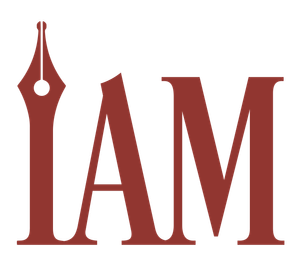Indie Author Magazine: Engaging with Design and Diversity
Indie Author Magazine: How will the strategy of publishing wide play a part in the future of the industry?
Theodora: As someone who went wide at the turn of the decade—during the pandemic, I can't tell you what an anxiety balm it's been to have a diversified portfolio in these ever-changing times. But I was a huge fan of KU when I could only write and didn't have much time to attend to admin.
It was and continues to be an individual decision best made by the author themself with a clear sense of their long-term goals and where they are in their career.
Indie Author Magazine: Do you anticipate that the definition of wide will ever evolve to mean more? If so, where do you see authors going?
Theodora: It's ever-evolving, for sure. When I first attempted and failed to go wide before the pandemic, I considered "going wide," posting to Draft2Digital.
Now, I consider it posting to all major retailers individually; uploading my books to Radish and a few other reputable chapter-by-chapter sites; putting my audiobooks on Findaway; and commissioning a main website set up to make direct sales—oh, and maybe, I'll do a Kickstarter for an illustrated boxset.
I can only imagine what going wide will look like 10 years from now.
Indie Author Magazine: On an individual level, direct publishing can equate to greater control over titles, greater royalties, and a closer relationship with readers. What will the trend of authors publishing direct mean for the industry as a whole?
Theodora: Authors will become even more used to being in complete control of their product, and their marketing savvy will increase. They'll plan to write books that are super easy to market as opposed to writing books, then figuring out how to market the books they've written. They'll care less about metrics like Amazon sales rank and more about the overall health of their catalog.
I think indie publishing companies will start to look a lot different too. The ones that nail direct sales will be a lot more attractive to authors still wanting publishing contracts. So I predict several more indie publishing companies will be started by authors who have cracked the code of direct sales.
Mostly, I'm excited about what this means for products beyond books. I'm predicting more crowdfunding for books to be turned into things like graphic novels and micro-budget movies that can then be sold directly to savvy audiences.
Indie Author Magazine: With AI being such a hot-button, divisive topic now, what role(s)—if any—do you think it will play in the indie publishing world in five years' time?
Theodora: Intended to only give us a spot like sixty four characters for the AI being such a hot button divisive topic role, but I am just in case it wasn't, I'm going to leave my rambling response as would have been much better if I could have typed it. So sorry ahead of time. I think AI is a hot button divisive topic right now. People fall and I don't think there's two sides of the line. I think it's really, really nuanced as to where people fall. I think some people just kind of wanna use it as an aid kind of like we would grammarly, like, oh, let me use this to help spit out ideas about outlines and stuff like that. Some people would really love to use it as a writing tool like, hey, produce a book about this. And some people would love it to go away altogether, for it to just die. At the end of the day, I think this is a very, very, very nuanced issue It's not black and white. And in five years, I think we'll have the same stuff that we have with Photoshop where Everyone can kind of tell it's been used. But and that when it's not used, it's kind of obvious, but also maybe people will just enjoy filters to the point that most things are filtered, like, the same way. Most things are spelled checked today. And it will have a place in our community, but it will hopefully be a more comfortable place where some people are just kind of like, I don't use any AI other than spell check. They might even name themselves kind of like when I was after I got my laptop in college, and and for quite a while, like, at least ten, twenty years, I would say the last person heard about doing this. Was in maybe the early two thousands. There would be certain literary writers who would use typewriters. And they would say it's sounds better. I feel more connected and stuff like that. So there might be people who really issue AI altogether. And say, hey, I'm a purist. I only use spell check, like, you know. It's just kind of like they only use typewriters but, you know, typewriters that erase or typewriters with the with the special ribbon that erase, not, like, really, really old school typewriters. Although some people might say, I don't even use spell check. I use a laptop and I send it to my editor exactly as I've always done. I see no reason to change. So AI, I'd certainly don't I'm certainly not in the camp that this will destroy us. As an industry, I am in the camp that it will look different in five years just kind of like our laptops look different. I didn't have Grammarly five years ago. I think maybe I just adopted Grammarly five years ago. And now I have all sorts of editing things I do within Grammarly. It my editing process looks a lot different. And so AI hopefully, will work as seamlessly with my process or my process will it will be a help to me, not a hindrance. I'm not a purist. I'm certainly open to whatever AI can do to make to enhance my natural talents just like I'd use a filter and tip top or, you know, a photo or use photoshop. For a cover. I'm fully you willing to adopt AI in that sense. I don't see any reason to have AI write a book for me because then what would be the point of being a writer as I intend to be a writer I am excited if someone is interested in having AI write a book and can manipulate it in that way and can like, kind of think of ways to use chat GPT in or any of these any of these products in ways that create works that are actually worth reading or are really, really good or really, really awesome to read. A, I don't think that will be an easy feat. So, like, you know, the idea of someone just being a lazy person who barely speaks whatever language that they're hoping to create a book in and just saying create a book and lazily make put in it to market and making tons of money and taking away all of our money. I don't think that's going to be the case. I think if someone does create this kind of AI book that people are kind of very so many people are kind of concerned about, I think it will require lots and lots of effort. In some ways, it will take longer than just writing a book with for most of us. And so I'm interested to see the results so far I've not read that I know are really, really completely written by prompt book, and I'd be interested to see a really, really good book where to buy prompts. I think if something like that is capable of going to market and becoming a huge, huge, huge best seller and the author admits to having done it, like, it will hopefully be a really, really, really, really, quote unquote, good. That means that It appeals to a wide audience. It is highly marketable. It is effective emotionally. It does what it's supposed to do. I think we're a while from that. I don't even know if someone maybe in five years, I would really love see it. I cannot predict that one way or the other. But if that does happen, I think it will be a huge amount of work on that person's part. Not the easy thing that people are suggesting it might be.
Indie Author Magazine: How important is technology to one's success as an indie author and to the industry as a whole?
Theodora: To leave these in well written answer in written form because I do tend to ramble, but there's nothing that is allowing me to do that. So here's another long answer. How important is technology to once success as an in the author into the industry as a whole. I think technology is as important as it needs to be for the individual author. You know, obviously, there are authors who literally have so much organizational, brain organizational talent and that they could write a novel by hand, have someone else type it up and upload it, and be okay. And still make a living. And then there are authors who are really technologically savvy can say, hey, you know, I'm going to absolutely rapid release, and I'm going to do use technology to make myself more efficient, and I'm going to release at a pace that makes me as successful as the person with a huge amount of, I guess, you call it native talent. And we're going to have make equal amounts of money. Everybody kinda gets there in their own way. I say technology is as important as it needs to be to you as an individual you know, obviously, there are people who make a lot. The TikTok writers do really well. They kill it. There are tons of people on in making a lot of money just as much and more than some TikTok writers without being on TikTok. Or just because it matches because Jess is a de minimis of work that makes it sound like it was easy or because they're they've really done a work to make themselves familiar to audiences, or because they wrote up their amount Titok personally, but it was really appealing to people who were on Titok. So I don't think it has to be the be all and all, but I do love things like grammarly. I do love things like editing suites, Hemingway, all the new stuff that helps prowriting aid, all that awesome add those editing tools have been awesome. And like I said in further questions, I'm not great with check with AI. I don't mind AI. I think it will hopefully help anyone who I hope it will be of help to authors to assist to assist in their native talent just like, you know, I like that if you're not a film student who spent a quintillion dollars to go to New York University or one of or USC or one of the equivalent film schools that and but you have a lot of talent. Like, maybe you could be a director. You can't put together videos stuff like that that you can now make a career out of YouTube or TikTok and stuff like that. So I think it is as important as you wanted to be, if technologies have helped to you, yay, if if you don't like technology, I think you can still be very, very successful in this industry.


